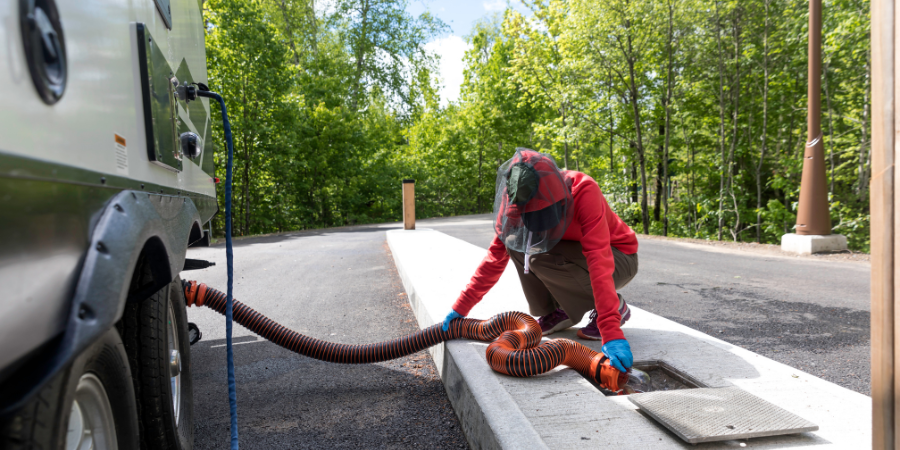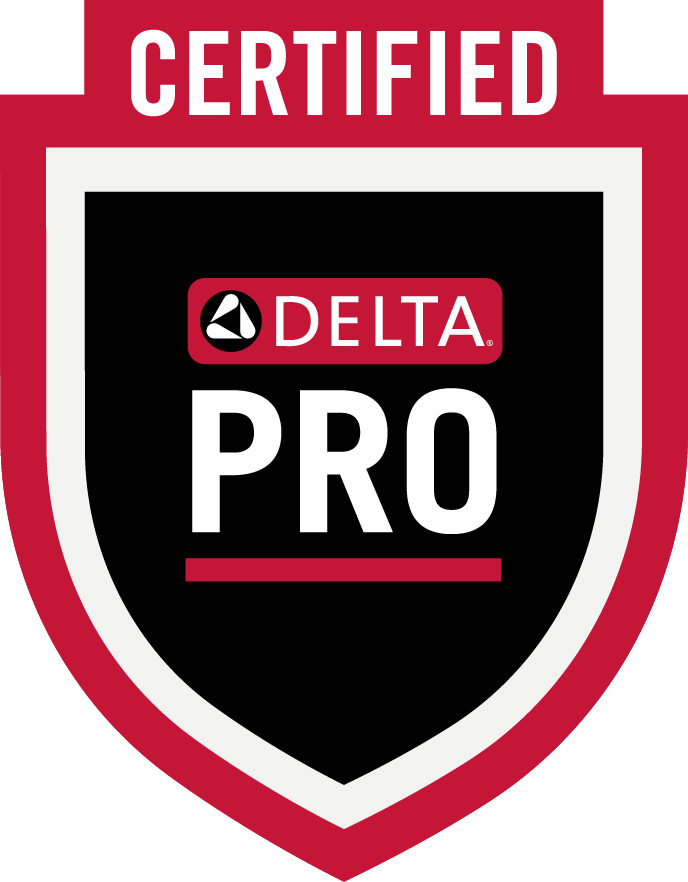Maintaining a healthy and functioning sewer line is a critical aspect of homeownership that often goes unnoticed until a significant problem arises. Sewer line failures can lead to severe issues such as property damage, health hazards, and costly repairs. Understanding how to recognize the signs of sewer line failure and taking preventive measures can save homeowners a lot of trouble and expense. As a professional plumber, I’ve seen firsthand the importance of proactive sewer line maintenance and the benefits of early detection and prevention.
In this comprehensive blog, we will explore the intricacies of sewer lines, the common causes of their failure, how to identify potential problems early, and the best practices for preventing these issues. By understanding these aspects, homeowners can better manage their plumbing systems and avoid the headaches that come with sewer line failures.
Understanding Sewer Lines
Sewer lines are an essential part of a home’s plumbing system, responsible for transporting wastewater away from the property. This section will delve into their function, components, and the materials used in their construction.
Function
The primary function of a sewer line is to carry wastewater from your home’s plumbing fixtures to the municipal sewer system or a septic tank. This system ensures that waste is efficiently and safely removed from your living environment, preventing contamination and maintaining hygiene.
Components
A typical sewer line system comprises several key components, including drain pipes, vent pipes, cleanouts, and traps. Each component plays a crucial role in maintaining the proper flow and disposal of wastewater. Understanding these components helps in identifying and addressing potential issues before they escalate.
Materials
Sewer lines can be made from various materials, each with its own set of advantages and disadvantages. Common materials include clay, cast iron, PVC, and ABS. The choice of material can impact the longevity, durability, and maintenance requirements of the sewer line. Modern homes often use PVC or ABS pipes due to their durability and resistance to corrosion.
Causes Of Failure
Sewer line failures can occur due to several reasons. This section will discuss the most common causes, providing insights into how these issues develop and their potential impact on the plumbing system.
Root Intrusion
Tree roots are naturally attracted to the moisture and nutrients in sewer lines. Over time, roots can infiltrate the pipes, causing blockages and even breaking the pipes. Root intrusion is a common cause of sewer line failure, especially in older homes with clay pipes.
Corrosion
Corrosion is a significant issue for metal sewer pipes, such as cast iron. Over time, the pipes can rust and deteriorate, leading to leaks and eventual failure. Corrosion is particularly problematic in older homes and areas with acidic soil conditions.
Blockages
Blockages in the sewer line can occur due to the buildup of grease, debris, and foreign objects. These blockages can restrict the flow of wastewater, causing backups and potential damage to the pipes. Regular cleaning and proper disposal habits can help prevent blockages.
Ground Shifts
Ground shifts and soil movement can place stress on sewer lines, leading to cracks and breaks. This is especially common in areas with unstable soil or seismic activity. Ground shifts can cause significant damage to both the sewer line and the surrounding infrastructure.
Poor Installation
Improper installation of sewer lines can lead to a host of problems down the line. Issues such as incorrect pipe slopes, inadequate sealing, and poor material choices can all contribute to premature failure. Ensuring that sewer lines are installed by experienced professionals is crucial for long-term reliability.
Signs Of Failure
Early detection of sewer line problems can prevent major issues and costly repairs. This section will outline the common signs that indicate a potential sewer line failure.
Slow Drains
One of the earliest signs of a sewer line problem is slow-draining sinks, tubs, and toilets. If multiple fixtures are experiencing slow drainage, it could indicate a blockage or damage in the main sewer line.
Foul Odors
Unpleasant odors coming from drains or around the property can signal a sewer line issue. These odors are typically caused by sewage backup or leaks, which allow gases to escape from the pipes.
Backups
Frequent backups in toilets and drains are a clear indication of a problem in the sewer line. Backups occur when wastewater cannot flow properly through the pipes, often due to blockages or damage.
Lush Growth
Unusually lush patches of grass or vegetation in the yard can indicate a sewer line leak. The nutrients in the wastewater can promote rapid plant growth in the affected area.
Foundation Damage And Cracks
Cracks in the foundation or unexplained structural damage can sometimes be linked to sewer line issues. Leaking water from damaged pipes can erode the soil and compromise the stability of the foundation.
Prevention
Preventive measures are key to avoiding sewer line failures and the associated costs. This section will discuss various strategies to keep your sewer lines in good condition.
Regular Inspections
Scheduling regular professional inspections of your sewer lines can help detect potential issues early. Inspections using cameras and other diagnostic tools can identify blockages, cracks, and other problems before they become severe.
Proper Disposal Habits
Educating residents about what should and should not be flushed or poured down the drains can significantly reduce the risk of blockages. Items such as grease, wipes, and hygiene products should be disposed of properly to prevent clogs.
Tree Root Management
Managing the growth of trees and plants near sewer lines can help prevent root intrusion. Root barriers and regular root cutting can protect the pipes from damage.
Upgrade Pipes
In older homes, upgrading to modern pipe materials such as PVC or ABS can prevent issues related to corrosion and deterioration. These materials are more durable and resistant to common problems that affect older pipes.
Routine Maintenance
Regular maintenance tasks, such as cleaning the drains and flushing the sewer lines, can keep the system running smoothly. Proactive maintenance helps prevent blockages and other issues that can lead to sewer line failure.
Choosing The Right Plumber
Selecting a qualified plumber is crucial for maintaining and repairing your sewer lines. This section will provide tips on choosing the right professional for the job.
Licensed And Insured
Ensure that the plumber you choose is licensed and insured. Licensing guarantees that the plumber has the necessary skills and knowledge, while insurance protects you in case of accidents or damage during the repair process.
Experienced
Experience is essential when dealing with sewer line issues. An experienced plumber will have encountered a wide range of problems and will be better equipped to diagnose and repair your specific issue.
Advanced Equipment
Modern diagnostic and repair equipment can make a significant difference in the efficiency and effectiveness of sewer line maintenance. Choose a plumber who uses advanced tools such as camera inspections and trenchless repair methods.
Looking For Help In Maintaining And Repairing Sewer Lines?
Recognizing and preventing sewer line failures is essential for maintaining a healthy and functional home plumbing system. By understanding how sewer lines work, being aware of common causes of failure, and recognizing the signs of potential problems, homeowners can take proactive steps to protect their property. Regular inspections, proper disposal habits, and preventive maintenance are all crucial components of an effective sewer line management strategy.
Investing in the right plumber and ensuring that sewer line issues are addressed promptly can save homeowners from costly repairs and significant inconvenience. A well-maintained sewer line system contributes to the overall health and safety of the home, providing peace of mind for homeowners.
If you suspect any issues with your sewer lines or have not had a professional inspection in recent years, now is the time to take action. Schedule a sewer line inspection with OVC Plumbing and Drain to ensure your sewer system is in good condition. Implement preventive measures and educate your household on proper disposal habits to maintain a healthy plumbing system. Don’t wait for problems to escalate—take proactive steps today which begins with a single phone call. We are here to help!






